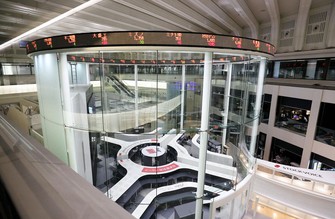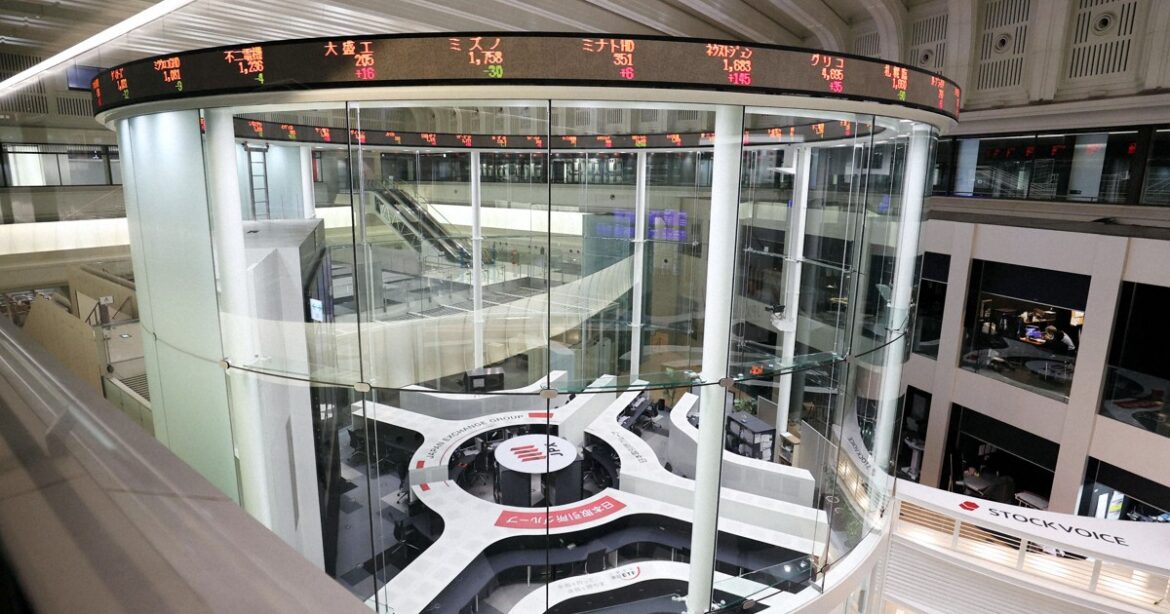
This file photo shows the Tokyo Stock Exchange. (Mainichi)
TOKYO (Kyodo) — Tokyo stocks fell Monday, with the Nikkei index briefly diving over 2 percent, fueled by concerns over a U.S. economic slowdown following weaker-than-expected jobs data.
The 225-issue Nikkei Stock Average ended down 508.90 points, or 1.25 percent, from Friday at 40,290.70. The broader Topix index finished 32.45 points, or 1.10 percent, lower at 2,916.20.
On the top-tier Prime Market, main decliners were led by bank, mining and service issues
The U.S. dollar briefly declined to the lower 147 yen level in early morning trading after weakening sharply in New York on Friday after U.S. employment data for July showed a slowdown in the labor market, fueling speculation that the Federal Reserve will cut interest rates soon.
But the U.S. currency later briefly rose to around the 148 yen line in Tokyo, as it was bought back amid a rise in U.S. Treasury yields, dealers said.
At 5 p.m., the dollar fetched 147.87-89 yen compared with 147.34-44 yen in New York and 150.53-55 yen in Tokyo at 5 p.m. Friday.
The euro was quoted at $1.1563-1565 and 170.99-171.03 yen against $1.1580-1590 and 170.82-92 yen in New York and $1.1418-1420 and 171.88-92 yen in Tokyo late Friday afternoon.
The yield on the benchmark 10-year Japanese government bond ended at 1.505 percent, down 0.045 percentage point from Friday’s close, as the debt was bought after U.S. Treasury yields fell.
The Nikkei stock index briefly slipped below the 40,000 threshold for the first time in about two weeks, as an increase in U.S. nonfarm payrolls fell short of market expectations, while the figures in May and June were revised sharply downward.
“Investors were somewhat optimistic about the U.S. economy, but they grew cautious as labor indicators pointed to a slowdown,” said Masahiro Ichikawa, chief market strategist at Sumitomo Mitsui DS Asset Management Co., adding that the market was also surprised by the downward revisions.
Banking and other financial stocks were notably sold as hopes for improved profits receded after long-term interest rates declined.
Stocks later recouped some of their losses as investors hunted for bargains, brokers said.


AloJapan.com